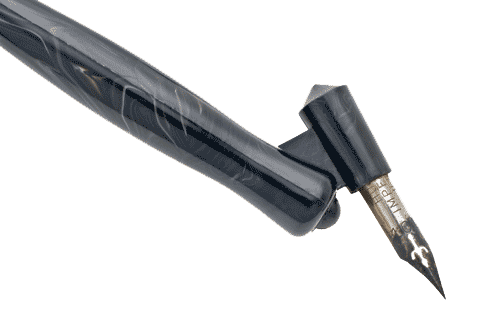FWP:
SETS == WORDPLAY
WRITING: {7,3}
This verse is an encyclopedic collection of wordplay of all kinds about writing. The word munḥarif comes from the same root as ḥarf , which can mean 'nib of a pen' and 'letter of the alphabet' (Platts p.476). Then rasm means not only the usual 'custom', but also 'sketch' or 'outline'; most centrally, qat̤ means the nib of a pen; the cutting of the nib of a pen; and a sideways cut. In addition, not only does qalam mean 'pen', etc., but qalam honā means 'to be cut off'. And then the final major effect: sar-navisht , 'destiny, is that which is 'written on the forehead'.
For 'writing' wordplay, probably the only real rival to this verse is {1,1}. They are similar in their general line of thought as well: both maintain that we humans are like lines (of words or images) on paper, helplessly 'drawn' or 'written' by a casual, careless writer with a crooked pen and a taste for mischief. If we are badly drawn, not only do we acknowledge no guilt-- we firmly lay the responsibility where it belongs: on the pen-wielder.
For after all, it's we who suffer the consequences;
remember {110,3}.

Nazm:
That is, in my very destiny is that I would remain turned aside from the path of religious merit. (126)
== Nazm page 126